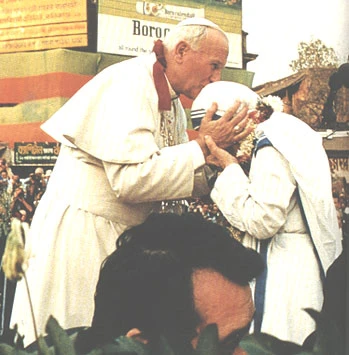Mikati raises possibility of electoral law changes
Announcement made after Sfeir meeting
By Majdoline Hatoum
BEIRUT: Lebanon's Prime Minister Najib Mikati insisted parliamentary elections will begin on time this month but added some amendments could still be made to the controversial legal framework for the polls.
Following a meeting with Maronite Patriarch Nasrallah Butros Sfeir, who has condemned the 2000 electoral law under which the elections will take place for failing to properly represent Lebanon's Christians, Mikati, said: "We will assess the possibility of reconsidering the electoral law of 2000, perhaps introducing amendments to some electoral districts."
Violence flares on Israeli border ahead of key Lebanon polls
KFARSHOUBA, Lebanon (AFP) - Violence flared on Lebanon's border with Israel for the first time in four months as preparations quickened for parliamentary elections in two weeks' time.
The Friday 13th flare-up underlined the dangers of a power vacuum in Lebanon after Syria ended its 29-year troop deployment last month, with the anti-Syrian opposition fracturing amid 11th-hour bickering over the constituency boundaries for the elections.
in Lebanon after Syria ended its 29-year troop deployment last month, with the anti-Syrian opposition fracturing amid 11th-hour bickering over the constituency boundaries for the elections.
An Israeli military spokeswoman reported no fewer than nine explosions near Israeli positions in the disputed Shebaa Farms district.
-
Beatification requires that a miracle has occurred
-
Group approaches local bishop
-
After Rome's approval an investigation is launched
-
Findings are sent to the Congregation for the Causes of Saints
-
Case is presented to the Pope
-
Blessed may be accorded a feast day
-
Relics of the candidate may be venerated
-
Canonization (actual sainthood) requires proof of a second miracle
Beatification and Canonization
HISTORY
According to some writers the origin of beatification and canonization in the Catholic Church is to be traced back to the ancient pagan apotheosis. In his classic work on the subject (De Servorum Dei Beatificatione et Beatorum Canonizatione) Benedict XIV examines and at the very outset refutes this view. He shows so well the substantial differences between them that no right-thinking person need henceforth confound the two institutions or derive one from the other. It is a matter of history who were elevated to the honour of apotheosis, on what grounds, and by whose authority; no less clear is the meaning that was attached to it. Often the decree was due to the statement of a single person (possibly bribed or enticed by promises, and with a view to fix the fraud more securely in the minds of an already superstitious people) that while the body of the new god was being burned, an eagle, in the case of the emperors, or a peacock (Juno's sacred bird), in the case of their consorts, was seen to carry heavenward the spirit of the departed (Livy, Hist. Rome, I, xvi; Herodian, Hist. Rome, IV, ii, iii). Apotheosis was awarded to most members of the imperial family, of which family it was the exclusive privilege. No regard was had to virtues or remarkable achievements. Recourse was frequently had to this form of deification to escape popular hatred by distracting attention from the cruelty of imperial rulers. It is said that Romulus was deified by the senators who slew him; Poppaea owed her apotheosis to her imperial paramour, Nero, after he had kicked her to death; Geta had the honour from his brother Caracalla, who had got rid of him through jealousy.
Pope seeks to beatify John Paul
Pope Benedict XVI has begun the process of beatifying his predecessor John Paul II, the first step to sainthood.
first step to sainthood.
"The cause for the beatification of John Paul II is open," the new Roman Catholic leader told priests meeting at Rome's Basilica of St John in Lateran.
The Pope waived the usual rules which require a five-year wait before the Church begins to make someone a saint.
John Paul II died on 2 April, leading to widespread calls from Catholics worldwide for him to be made a saint.
Khazen History


Historical Feature:
Churches and Monasteries of the Khazen family

St. Anthony of Padua Church in Ballouneh
Mar Abda Church in Bakaatit Kanaan
Saint Michael Church in Bkaatouta
Saint Therese Church in Qolayaat
Saint Simeon Stylites (مار سمعان العامودي) Church In Ajaltoun
Virgin Mary Church (سيدة المعونات) in Sheilé
Assumption of Mary Church in Ballouneh
1 - The sword of the Maronite Prince
2 - LES KHAZEN CONSULS DE FRANCE
3 - LES MARONITES & LES KHAZEN
4 - LES MAAN & LES KHAZEN
5 - ORIGINE DE LA FAMILLE
Population Movements to Keserwan - The Khazens and The Maans
ما جاء عن الثورة في المقاطعة الكسروانية
ثورة أهالي كسروان على المشايخ الخوازنة وأسبابها
Origins of the "Prince of Maronite" Title
Growing diversity: the Khazin sheiks and the clergy in the first decades of the 18th century
Historical Members:
Barbar Beik El Khazen [English]
Patriach Toubia Kaiss El Khazen(Biography & Life Part1 Part2) (Arabic)
Patriach Youssef Dargham El Khazen (Cont'd)
Cheikh Bishara Jafal El Khazen
Patriarch Youssef Raji El Khazen
The Martyrs Cheikh Philippe & Cheikh Farid El Khazen
Cheikh Nawfal El Khazen (Consul De France)
Cheikh Hossun El Khazen (Consul De France)
Cheikh Abou-Nawfal El Khazen (Consul De France)
Cheikh Francis Abee Nader & his son Yousef
Cheikh Abou-Kanso El Khazen (Consul De France)
Cheikh Abou Nader El Khazen
Cheikh Chafic El Khazen
Cheikh Keserwan El Khazen
Cheikh Serhal El Khazen [English]
Cheikh Rafiq El Khazen [English]
Cheikh Hanna El Khazen
Cheikha Arzi El Khazen
Marie El Khazen